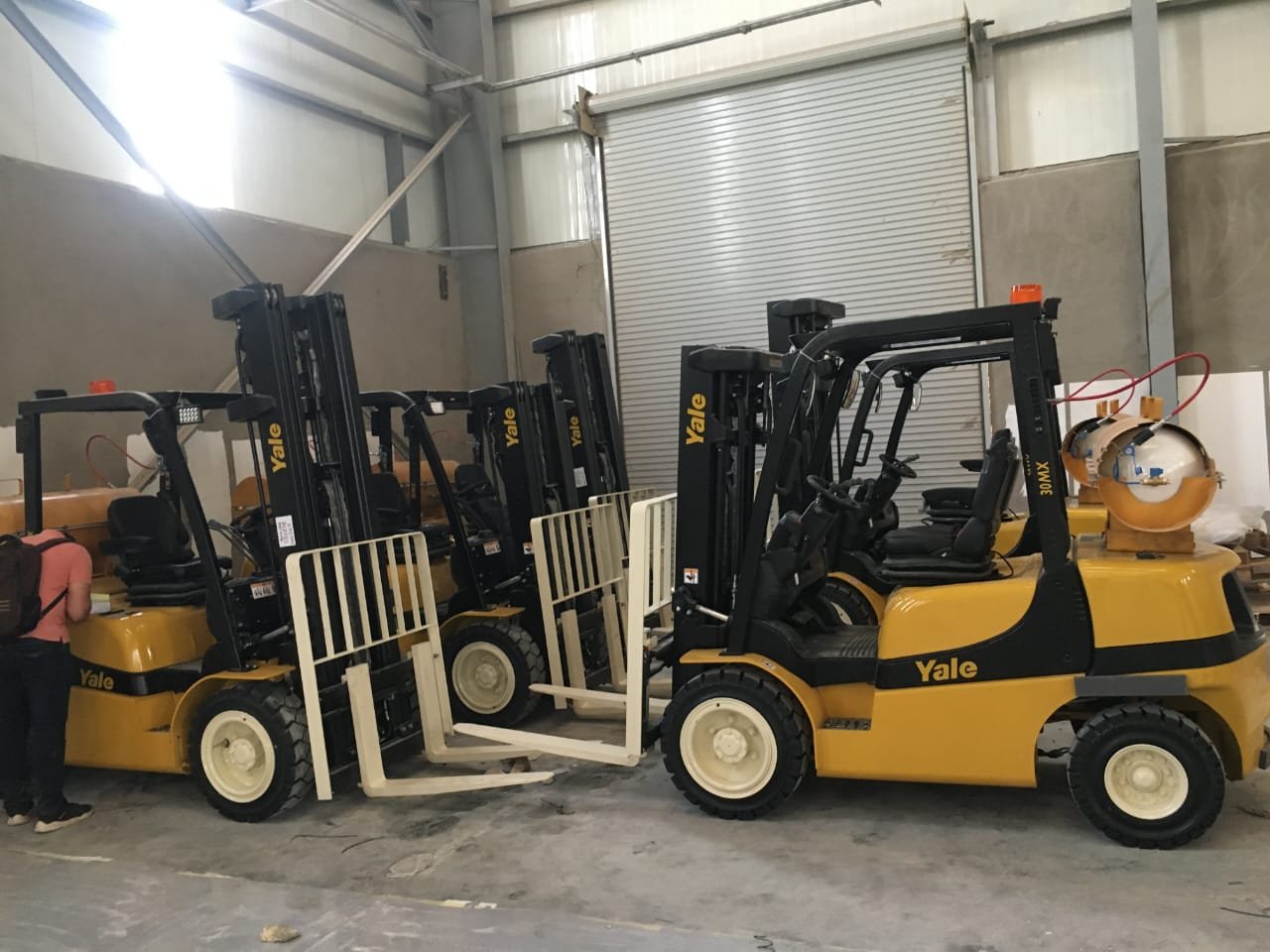
Articles

Forklift trucks play a pivotal role in optimizing operations within warehouses, enabling efficient movement and storage of goods. These versatile vehicles have revolutionized the logistics industry, offering a wide range of benefits including increased productivity, improved safety, and streamlined inventory management. In this article, we will explore the significance of forklift trucks in warehouses and the key advantages they bring to the table.
Streamlining Warehouse Operations with forklift trucks :
Forklift trucks act as indispensable workhorses in warehouses, facilitating the smooth flow of goods from one point to another. Equipped with forks that can be raised and lowered, these trucks efficiently handle heavy loads, reducing the manual labor required for lifting and carrying. By enabling swift loading and unloading of pallets and containers, forklift trucks significantly enhance operational efficiency, saving time and resources.
Forklift trucks have come a long way since their inception. Initially designed as basic manual machines, they have evolved into sophisticated vehicles powered by advanced technologies. Today, forklifts are available in various types, including electric, diesel, and propane-powered, each offering unique benefits depending on the warehouse environment and operational requirements.
The Power and Versatility of Lift Trucks in Material Handling:
Lift trucks, also known as forklifts, are indispensable assets in material handling operations. These powerful machines are designed to lift and transport heavy loads with ease, making them essential in a variety of industries, including warehousing, manufacturing, and construction. Equipped with sturdy forks, lift trucks can efficiently move pallets, containers, and other bulky items, streamlining operations and optimizing productivity. With their adaptability and maneuverability, lift trucks provide a versatile solution for lifting, stacking, and retrieving goods in diverse environments. From small-scale warehouses to large industrial facilities, lift trucks play a vital role in ensuring efficient and safe material handling processes.
Enhanced Safety Measures:
Safety is paramount in any warehouse setting, and forklift trucks are designed with several features to mitigate potential risks. These vehicles come with robust safety features such as rear-view mirrors, warning lights, and audible alarms to alert pedestrians and other workers of their presence. Additionally, advanced forklift models incorporate sensors and cameras to provide operators with better visibility and prevent accidents. By prioritizing safety, forklift trucks contribute to a secure work environment, reducing the likelihood of injuries and property damage.
Enhanced Safety Measures:
- Forklift trucks are equipped with safety features to protect both operators and warehouse personnel.
- These features include rear-view mirrors, warning lights, audible alarms, and seat belts.
- Advanced models often incorporate sensors and cameras for improved visibility, reducing the risk of accidents and collisions. Forklift trucks have versatile applications within warehouses, catering to a wide range of tasks. From loading and unloading shipments to transporting goods within the facility, forklifts can handle diverse materials such as pallets, containers, and even fragile or hazardous items. Their adaptability makes them indispensable in industries such as manufacturing, distribution, and retail.
Versatility and Adaptability:
Forklift trucks are incredibly versatile and capable of navigating through narrow aisles and tight spaces, which is particularly advantageous in warehouses with limited floor space. They can be customized with various attachments to handle specialized tasks, such as clamps for handling cylindrical objects or extendable forks for larger loads. This adaptability allows forklifts to cater to diverse warehouse requirements, enhancing their utility in different operational scenarios.
Versatility in Handling Various Loads:
- Forklift trucks are designed to handle a wide range of loads, including pallets, containers, and bulky items.
- They can be equipped with different attachments such as clamps, rotators, and side shifters to accommodate specific load requirements.
- Forklifts enable efficient stacking, destacking, and retrieval of goods, optimizing warehouse space utilization.
Efficient Inventory Management:
Effective inventory management is crucial for warehouses to maintain accurate stock levels and meet customer demands promptly. A forklift aids in this process by enabling efficient stacking and retrieval of goods. With their lifting capabilities, these trucks can access high shelving units, optimizing vertical space utilization. By swiftly moving goods and facilitating accurate inventory counts, forklifts contribute to streamlined operations and reduced inventory errors.
One of the primary advantages of forklifts is their ability to significantly enhance efficiency and productivity in warehouses. By automating the lifting and carrying of heavy loads, forklifts reduce manual labor, allowing workers to focus on more value-added tasks. Moreover, their maneuverability enables quick and seamless movement of goods, minimizing downtime and maximizing operational throughput.
Maintenance and Lifespan of Forklift Trucks:
Proper maintenance is essential to maximize the lifespan and performance of forklifts. Regular servicing, including inspections, lubrication, and component replacements, ensures that the forklifts operate optimally and minimize the risk of breakdowns. Adhering to manufacturer guidelines and scheduling routine maintenance tasks can extend the lifespan of forklifts, ultimately providing a higher return on investment for warehouse operators.
Safety is a critical concern when operating forklifts in warehouses. Employers must prioritize comprehensive safety measures and provide proper training to forklift operators. This includes educating operators on best practices, emphasizing safe driving techniques, and ensuring compliance with safety regulations. Regular maintenance and inspections of forklifts are also crucial to prevent accidents and ensure the safe operation of these vehicles.
Conclusion:
Forklift trucks have emerged as indispensable assets in modern warehouse management, revolutionizing the way goods are handled and stored. Their ability to streamline operations, enhance safety, and facilitate efficient inventory management makes them an invaluable tool for businesses. As technology continues to advance, we can expect further innovations in forklift design, empowering warehouses to achieve even greater levels of productivity and efficiency.

